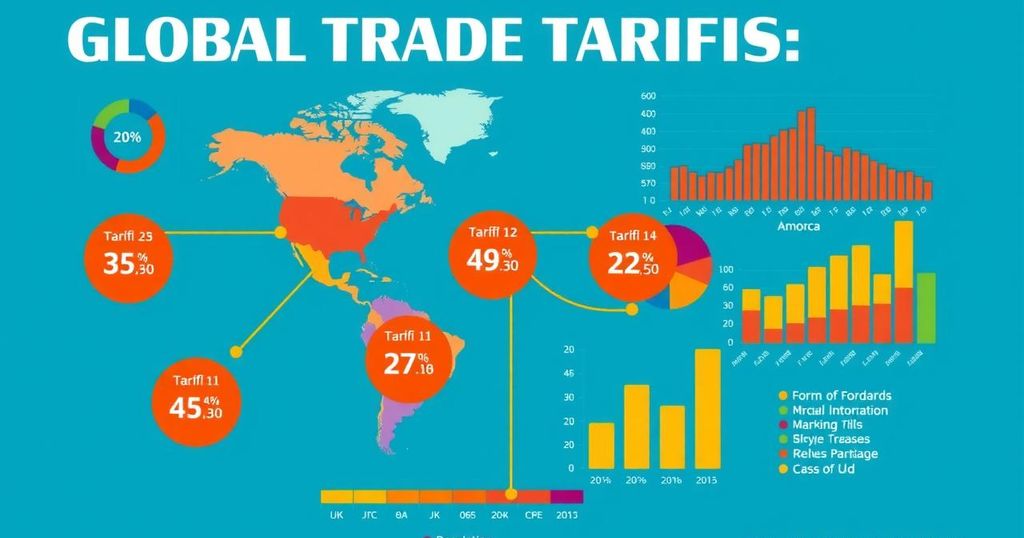Venezuela will resume U.S. deportation flights, citing humanitarian concerns for migrants sent to harsh prisons in El Salvador. This agreement follows the suspension of cooperation by Maduro due to policy changes under the Biden administration. Tensions arise around the deportation rationale, judicial interventions, and broader immigration strategies by the Trump administration.
The Venezuelan government has announced its decision to resume accepting deportation flights from the United States, attributing this move to the problems faced by Venezuelan migrants sent to harsh prisons in El Salvador. The first flight is expected as soon as Sunday, following an agreement with the Trump administration. Officials emphasized that migration should not be criminalized, advocating for the return of Venezuelan nationals needing rescue from El Salvador.
This agreement follows a previous suspension by Venezuelan leader Nicolás Maduro, influenced by the reversal of a Biden-era policy that had allowed increased oil exports from Venezuela. The Trump administration has faced mounting pressure from the U.S. to ensure the repatriation of its nationals, with threats of imposing severe sanctions against Venezuela should it refuse to cooperate.
The increase in Venezuelans crossing the U.S.-Mexico border is attributed to the country’s ongoing economic and social turmoil, which the Maduro regime blames on U.S. sanctions. With the return of deportation flights, these migrants will be sent back to a nation where they are afforded little due process, as highlighted by the Trump administration’s utilization of the Alien Enemies Act.
However, controversy surrounds the rationale for deporting Venezuelan migrants, with critiques of the narrative that they are primarily criminal gang members. Families of the deported individuals and immigration advocates have disputed this claim, emphasizing a lack of transparency and legal process in the deportation proceedings. Recent legal challenges have emerged, with federal judges seeking to intervene in the removals conducted under wartime authority, prompting tensions within the judicial system.
The Trump administration has sought to leverage such deportations as part of an aggressive immigration enforcement strategy. Allegations have surfaced of low cooperation from officials in answer to judicial inquiries. The resumption of deportation flights is also pertinent amidst a larger context of immigration policy shifts, notably the ending of a program benefiting migrants from several countries, which had provided limited legal pathways into the United States.
In summary, Venezuela’s renewal of cooperation concerning U.S. deportation flights represents a significant development rooted in humanitarian concern for migrants. The arrangement emphasizes the complex interplay between U.S. immigration policy, judicial authority, and Venezuela’s ongoing socio-economic crisis. This initiative coincides with rising tensions surrounding the legal frameworks guiding deportations, highlighting potential violations of due process and the implications that such actions may have on both nations involved.
Original Source: www.nytimes.com




